2021 Reading List
January 01 2021This is the reading list for 2021.
- Sapiens: A Brief History of Humankind by Yuval Noah Harari
- Kiki's Delivery Service by Eiko Kadono
- The Three Body Problem by Cixin Liu
- Alright, Alright, Alright by Melissa Maerz
- The Dark Forest by Cixin Liu
- Death's End by Cixin Liu
- Red and Me by Bill Russell
- The Hot Hand by Ben Cohen
- Stradivari's Genius: Five Violins, One Cello, and Three Centuries of Enduring Perfection by Toby Faber
- Prime Obsession: Bernhard Riemann and the Greatest Unsolved Problem in Mathematics by John Derbyshire
- Answers in the Form of Questions: A Definitive History and Insider's Guide to Jeopardy! by Claire McNear
- Hero of Two Worlds: The Marquis de Lafayette in the Age of Revolution by Mike Duncan
Sapiens: A Brief History of Humankind by Yuval Noah Harari
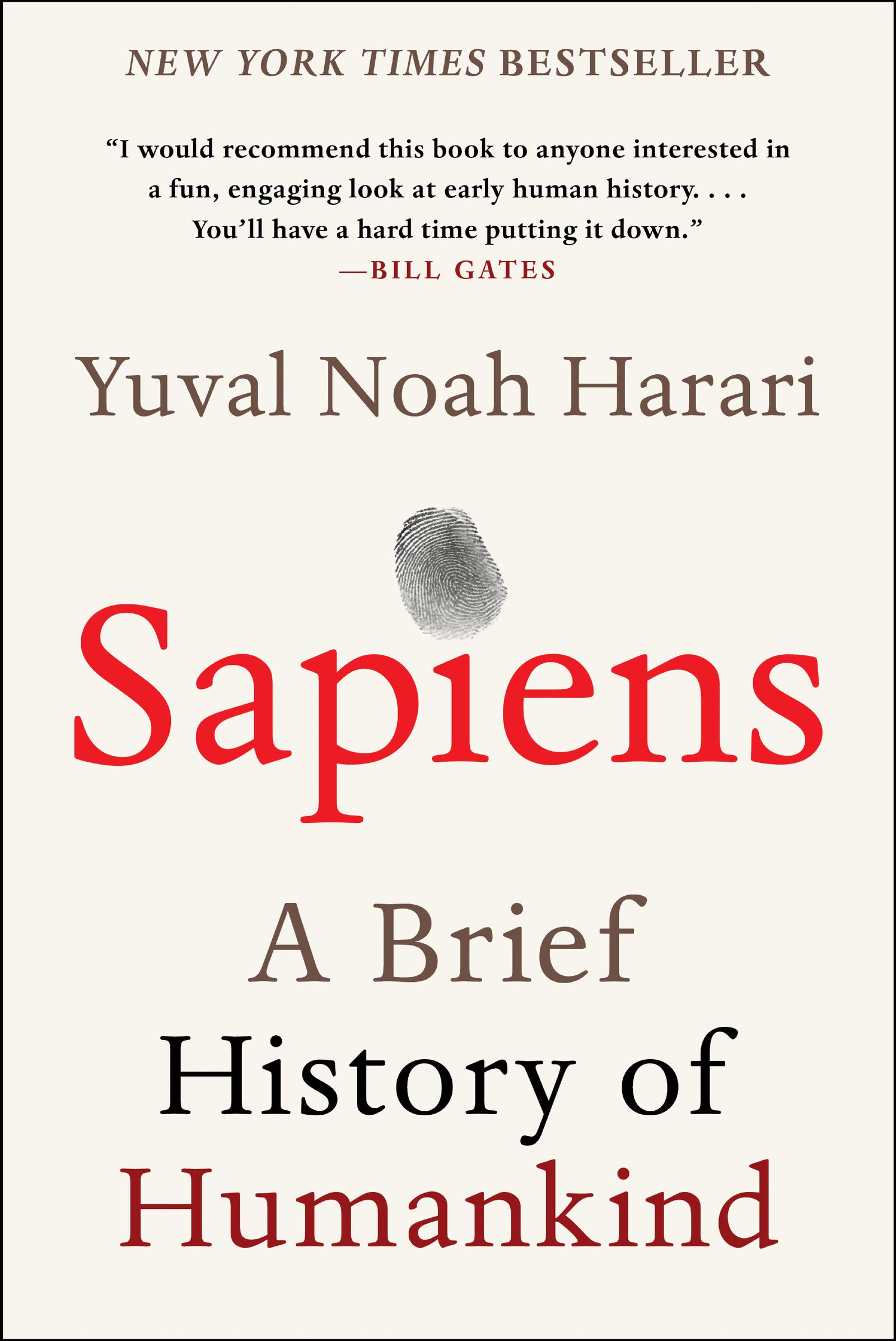
This book had been on my radar for a while now, and I see it frequently makes the rounds of books that people have really enjoyed in the past few years. Sapiens is essentially a history book for humans. I mostly enjoyed the beginning of the book, when Harari describes the evolution of other human-adjacent species into Homo sapiens. He does a great job of putting things into perspective, including the discussion of whether humans were better off (in terms of quality of living) when they were still scavengers, before settling down in the agriculturual revolution.
The latter parts of the book are more a discussion of macro trends in human culture, such as how economics, religion, and other factors influenced our development. Those parts were less interesting, as they were very high level summaries of histories that most people are likely at least somewhat familiar with. Overall though, this was a very thought-provoking text.
Kiki's Delivery Service by Eiko Kadono
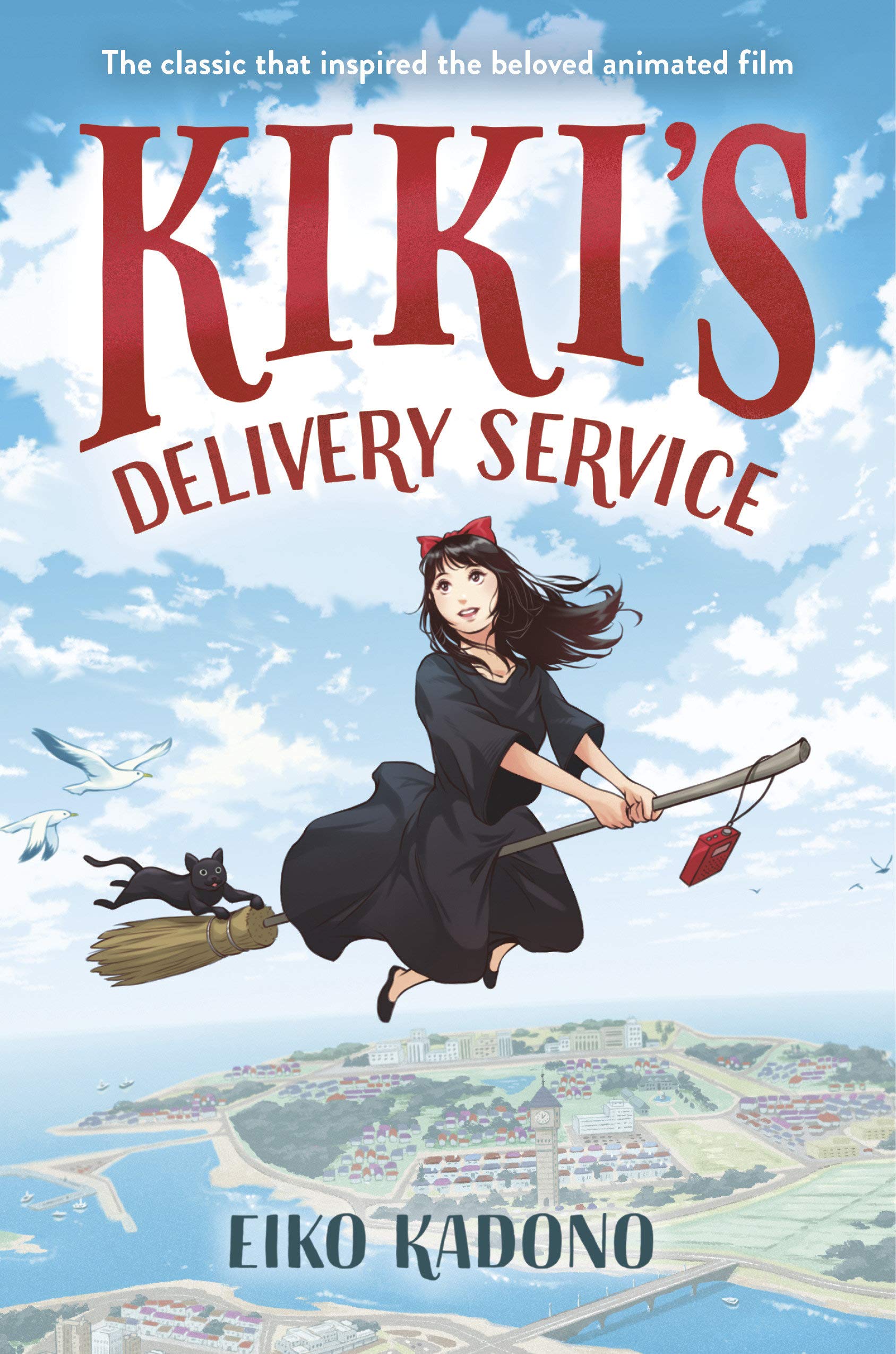
Kiki’s Delivery Service is one of my favorite Studio Ghibli films. The movie is inspired by this book, which is really a children’s book. The movie captures the ethos of the book very well. It is a simple, heartwarming coming of age story, with Kiki the witch setting off on her own at the age of thirteen. The book is organized as a series of events/deliveries, which is similar to that of the movie. There is not the same level of conflict, either external or internal, as in the movie. Still, the book is extremely cute and was a pleasure to read.
The Three-Body Problem by Cixin Liu
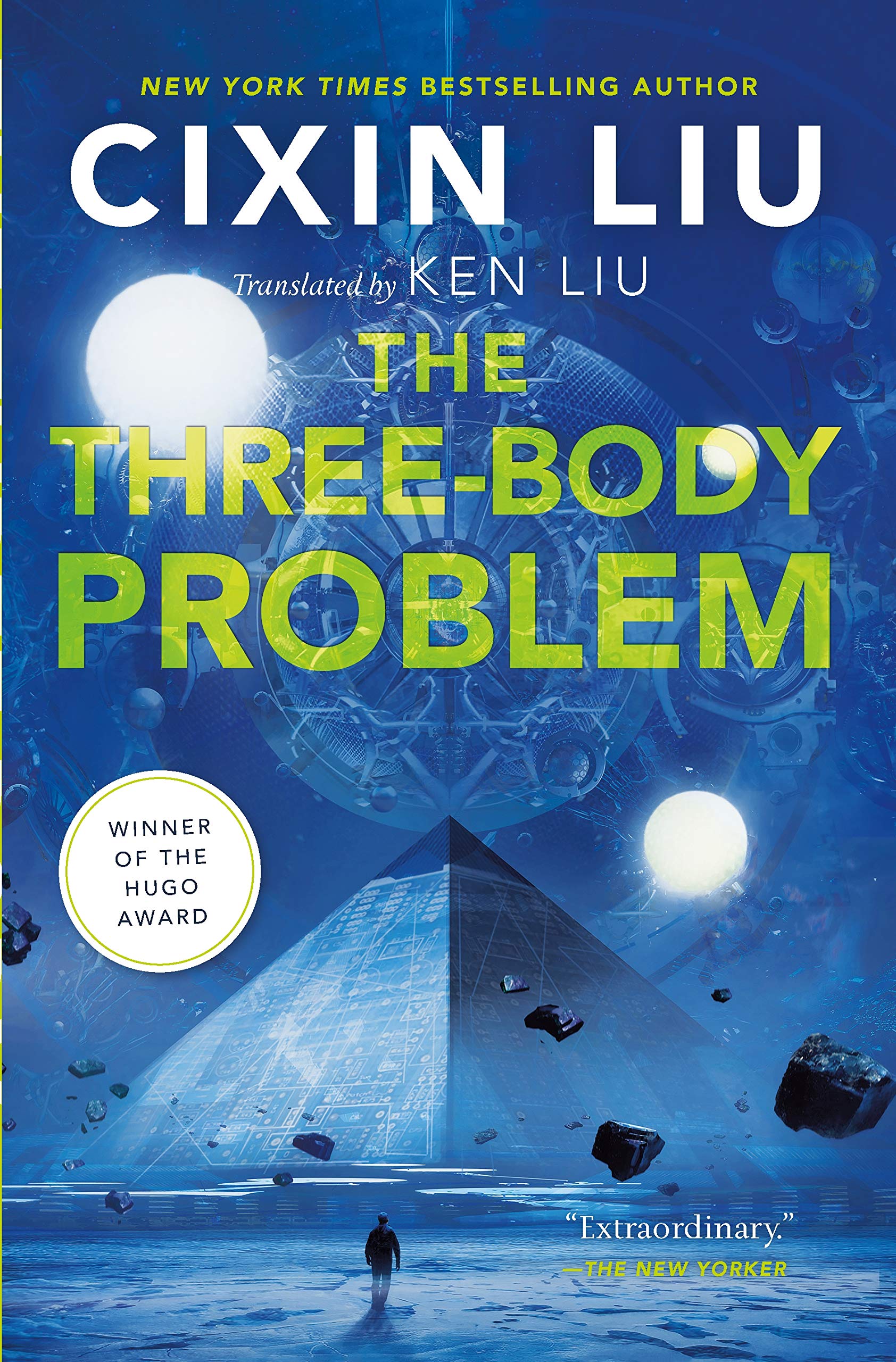
I had been recommended this novel by friends for a few years now. I’m not sure why I waited so long. This book is wholly original and a real page-turner. When I first started reading, I read for several hours straight, not going to bed until 2 in the morning.
It has a real Chinese element, both in terms of history and culture. It also has a pseudo Physics element, which is quite pleasurable to read. The only nitpick I have is that the ending is a little unsatisfying, and there is a bit of a deus ex machina element where some things are basically not explained at all, other than some version of “it works”. Regardless, I’m already looking forward to reading the rest of the trilogy.
Alright, Alright, Alright by Melissa Maerz
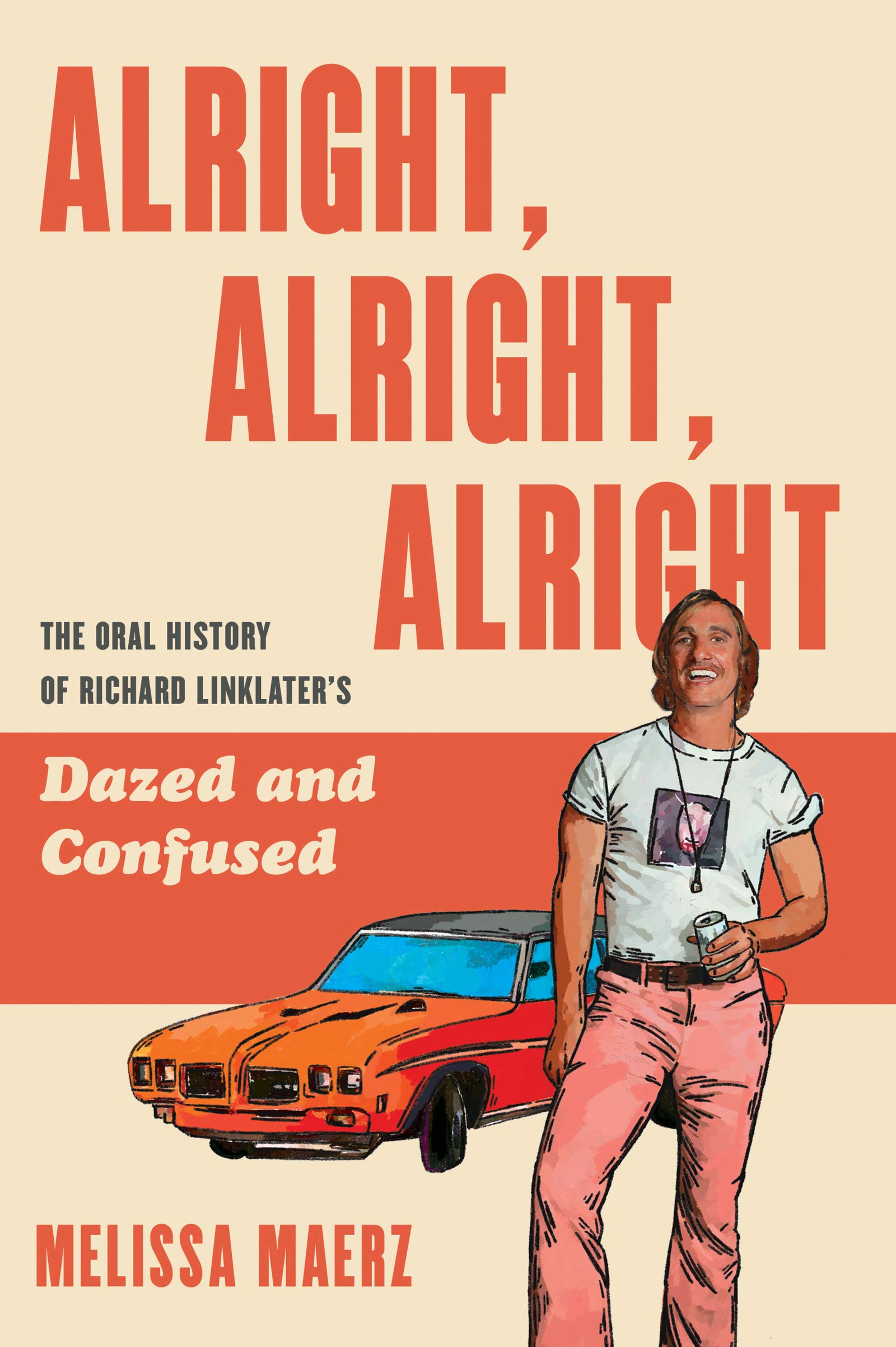
Dazed and Confused is one of my favorite movies, and Richard Linklater is one of my favorite directors (I especially enjoy the Before trilogy). I didn’t really know much about Linklater, and I just assumed he was a typical Hollywood director.
This oral history starts with an in-depth study of Linklater, and he really is a fascinating figure. He is extremely counter-mainstream. He really tries to do things in a different and unique way.
The movie itself sounded like a blast to make. All the kids in the movie basically spent an entire summer together. There were friendships, jealousies, romantic flings, and bonding.
The added bonus of the book is describing in some detail the origin story of Matthew McConaughey, for whom Dazed is essentially his first work as an actor. A big part of the movie had to be rewritten , as it turned out that one of the original main chaaracters (Pickford) was played by an actor that was very difficult to work with. McConaughey was such a sensation on set that they based the entire ending around him.
The Dark Forest by Cixin Liu
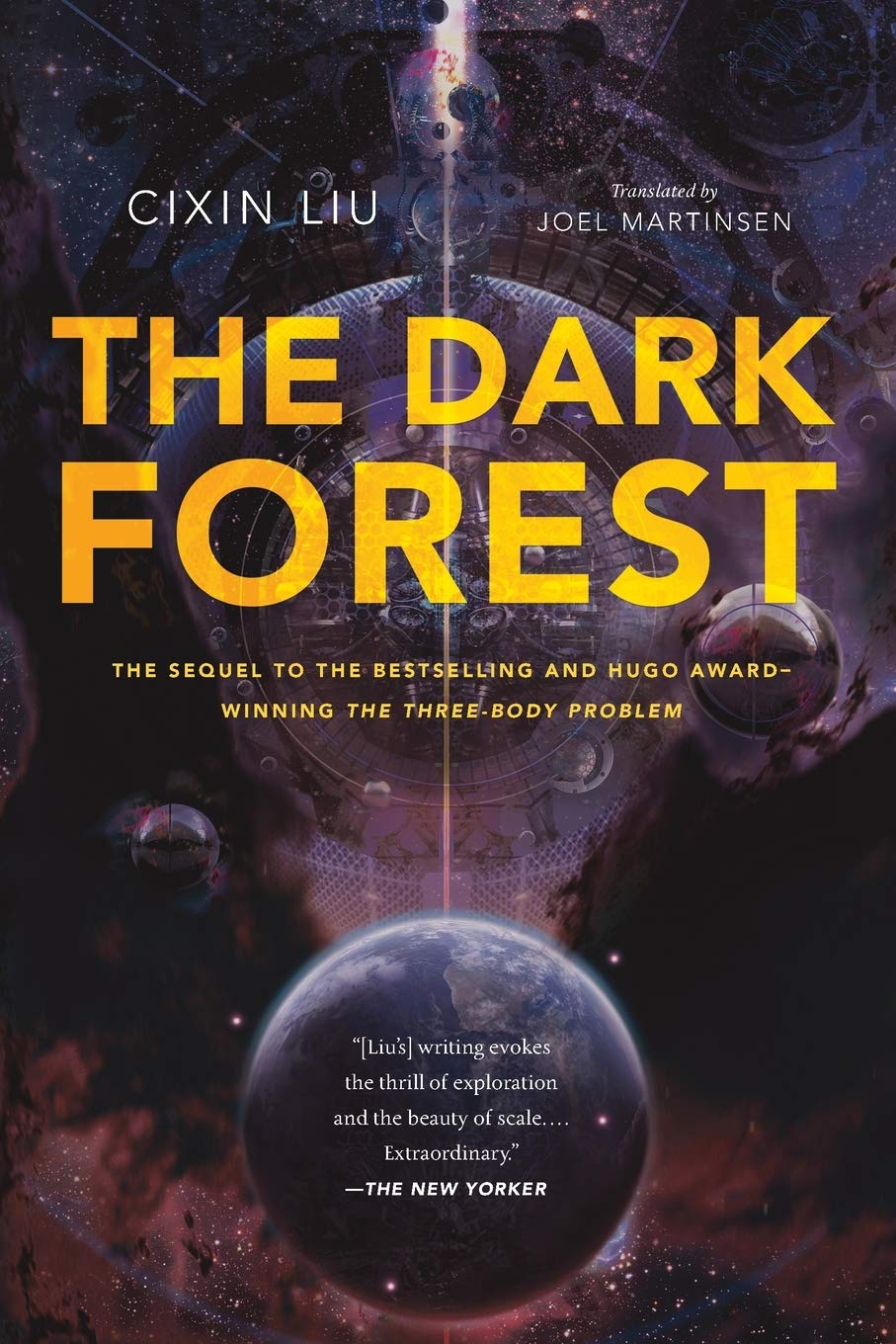
After a short break non-fiction break with the Dazed and Confused oral history, I decided to go back to the Three Body Problem trilogy. This one started out very slowly, and I really had a hard time getting into it. What drew me in ultimately was the sequence where Luo Ji, the main character, describes an experience in which he fell in love with a woman purely from his imagination. Ultimately, the book was very enjoyable, probably as enjoyable as the first one. The central thesis of the book, that the universe is dangerous and fundamentally there can be no “friendly cooperation” between different worlds, is a good one and compelling. It presents an alternative viewpoint to most sci-fi, where the assumption is that we’ll have agreed to understand cultural differences across planets and species. The thesis really is a lonely one: it makes it feel all the more that we (humans and Earth) are singularly alone in the universe.
The book is not without its faults. After the lovely description of the imaginary girlfriend, the plot takes a nonsensical turn where the actual woman is (almost literally) procured for Luo Ji. The book also doesn’t take much time to consider the repercussions of this fake, manufactured romance. The idea of the Wallfacers is interesting, but they all ultimately fizzle out at the end. The author also starts to really enjoy taking long detours. Where the first Three Body book was compact and forward-moving, I felt this one would dawdle for pages at a time (the climax with the Droplet is such an example). Finally, there is the oddity of reading a story in which the main character’s name is literally the Chinese word for “Logic”.
Death's End by Cixin Liu
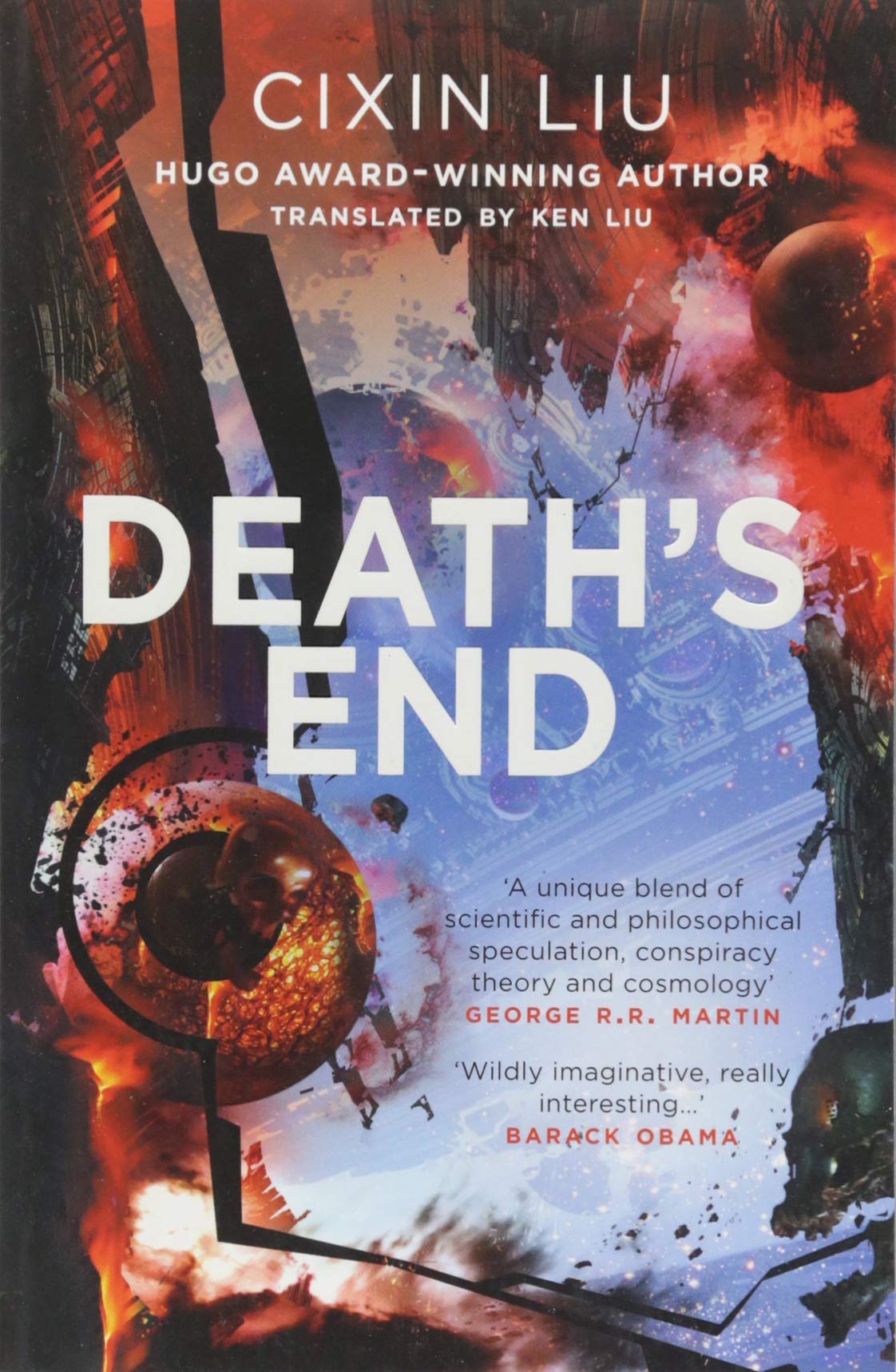
This time, I decided not to wait, so I just plowed ahead and finished the Three Body Trilogy. Unfortunately, while this book still has the page-turner qualities of the first two books, it is not nearly as well thought out or as satisfying as a conclusion to the trilogy.
My biggest criticism is actually in story construction. The main character, Cheng Xin, simply doesn’t have anything to do. She is meant to represent “the soft side of humanity” (or something like that), but the book just makes her look weak and ineffectual at every turn. I kept waiting for her to have some turn, like a redemption arc. She makes it to the end of the book, but, again, it’s less to do with her actions, and instead it’s more about actions happening to her. That’s simply not very satisfying, and it’s all the more frustrating that the author decided to make her a female character (in contrast to the previous male protagonists who are all pretty strong-willed).
The other criticism is this book is the most “science fictiony” of the three. The first two are more like philosophy books. Their central conflicts are revealing of human nature (and perhaps, the nature of all beings). This one doesn’t really reveal anything greater about our nature. Instead, it is chock full of physics/cosmological predictions and ideas, all of which are interesting to think about, but none of which is actually compelling.
Overall, I’m happy I got through these books, and they really were entertaining. My favorite is probably the Dark Forest, simply because the game theory-like philosophy put forth is really provocative to think about.
Red and Me by Bill Russell
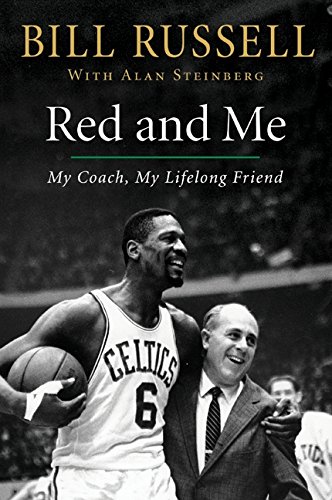
Bill Russell is one of the greatest NBA players of all time, and this book is ostensibly about his relationship with his coach, Red Auerbach. It’s really more of a biography about Russell himself, and the way of life and thinking that Russell has. He is a very straightforward man and seemed to live life very simply and proudly. There are definitely parallels to a favorite character of mine, Ron Swanson from Parks and Recreation.
The thing that seemed to bond Russell and Red above all was that their relationship started purely from professional and objective terms. As in, there was no personal relationship in the beginning, there was only how they were able to use each other to win basketball games, and winning was the one common trait among them. The way Russell portrays this is simple but I think hard to achieve. It takes a very specific type of personality not to let noisy things get in the way, and to purely distill every decision down to “will it help us win”. That’s what makes him one of the best.
The Hot Hand by Ben Cohen
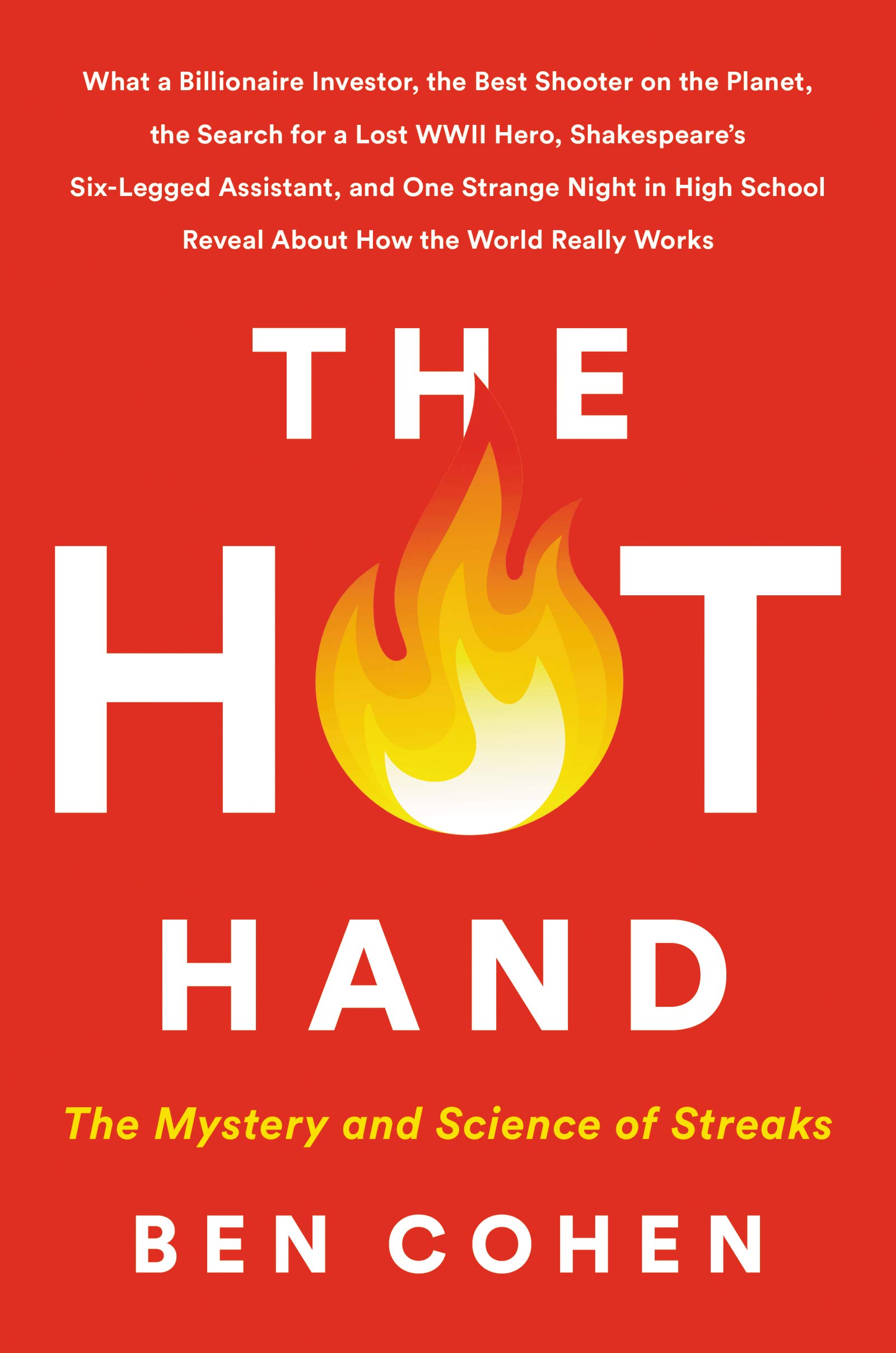
The premise of this book is really good - the “hot hand” is one of the most debated topics in all of basketball, where shooters feel a positive bias when a few shots go in. Unfortunately, this book proved to be more pop and culture-focused rather than focusing 100% on the statistics or even the basketball. It was a nice, leisurely read, and I even learned about some forgotten Holocaust heros, but ultimately, it wasn’t deep enough for me.
The basic idea here is that the hot hand theory has been “disproven” time and again by both statisticians and behavioral scientists. They find that, after making 1 or 2 shots, the probability of making the next shot is no greater than the average that the player shoots normally. It is one of the textbook cases of a behavioral bias - after making some shots, we feel better and we feel like the next shot is more likely to go in.
Cohen’s book relies on some recent studies that suggest that we’ve been thinking about this incorrectly, specifically from a statistics point of view. The statistics portion is based on the idea that basketball shots are actually a finite number, and that using percentages obscures it too much. In a typical game, you really only shoot a handful of times. Even within a season or a career, you only shoot the ball thousands of times. The insight is that, if you make a shot, your next shot, statistically, should actually be less likely to go in. Say you flip a coin once and it comes up heads. The next flip, it’s actually less likely to be heads, because the long-term equilibrium is 50%.
I’m not sure about the statistics theory behind this argument, but it is nice to see that there is nuance here which has got some scholars arguing. As an avid basketball player myself, I will say that I definitively subscribe to the hot hand theory, and I subscribe even more to the cold hand theory (sometimes, if I miss a few shots, it feels like I’ll never be able to hit a shot again).
Stradivari's Genius: Five Violins, One Cello, and Three Centuries of Enduring Perfection by Toby Faber
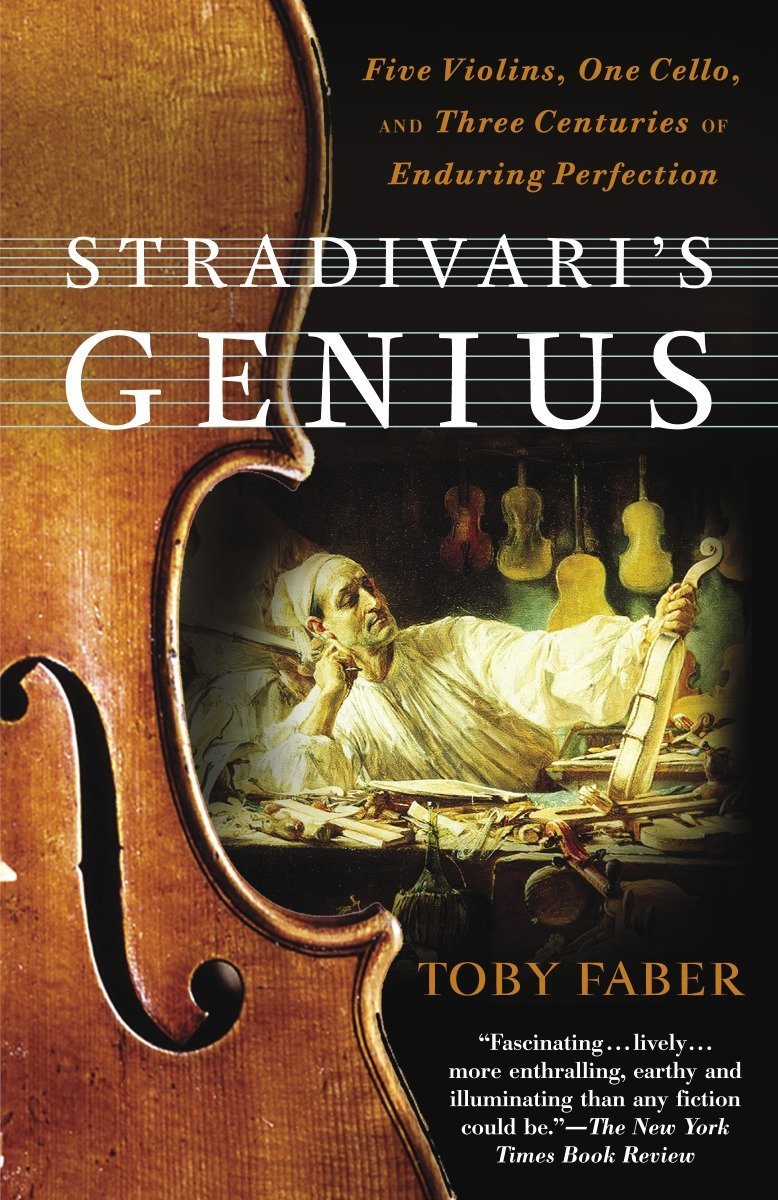
It’s pretty amazing that not much is known about the greatest violin maker in history, and even not much is known about his techniques. This book tries to piece together some of that history, but there are still holes. There are entire violins where we don’t know whether Stradivarius was the maker or one of his sons. And there is even greater mystery behind “The Messiah”, the visually perfect violin that has been copied endlessly but nevertheless itself has never actually been played by an owner.
The stories around the original collectors of violins are all really fascinating. This really was an information-asymetrical market for a very long time. Those that knew which violins were real vs. which were fake had a real advantage and could quickly build up impressive collections. That some of them were extremely poor is even more fascinating - many of them dedicated their entire lives to building violin collections, and they never realized any actual value or fortune from it.
Prime Obsession: Bernhard Riemann and the Greatest Unsolved Problem in Mathematics by John Derbyshire
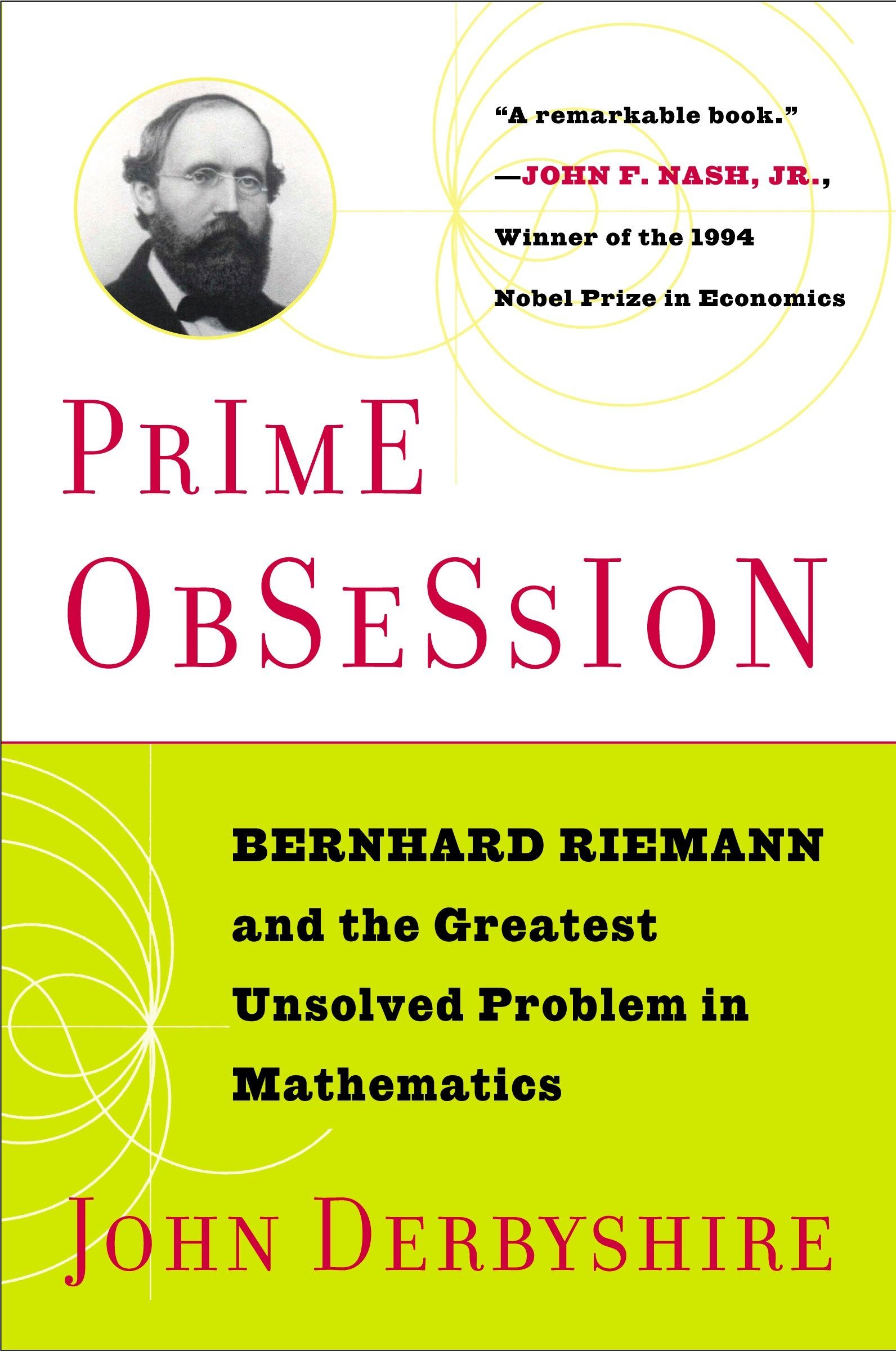
I decided to change it up a bit and read something outside of my comfort zone. Unfortunately, I ended up not finishing this book as the math just ended up becoming too complex for me.
I had always been somewhat interested in prime numbers ever since my freshman year calculus teaching assistant told me that he specialized in prime numbers and number theory. This book is a very friendly introduction to an unsolved problem in mathematics: what mathematical formula can tell you how many prime numbers exist less than N. For example, say you choose N arbitrarily to be 1 million - how many prime numbers are less han 1 million? Of course we know the answer to this because it’s countable, but we literally don’t have the computing power to get this for larger numbers. And the greater mystery is that, while there are math formulas that can approximate the answer (the number of primes grows rougly in a logarithmic fashion), there isn’t one formula that can tell you the exact answer.
This book was actually a really nice re-intro to number theory and particularly series and sequences. As someone that had to learn that almost 20 years ago (and didn’t do a good job the first time), it was nice to read about this stuff without the pressure of needing to produce well on a final exam. Also, the histories behind the mathematicians was really fun to read about. For example, I always knew Gauss was a key figure in the history of mathematics, but I didn’t know what a next-level genius he was or how he was involved in basically everything.
Answers in the Form of Questions: A Definitive History and Insider's Guide to Jeopardy! by Claire McNear
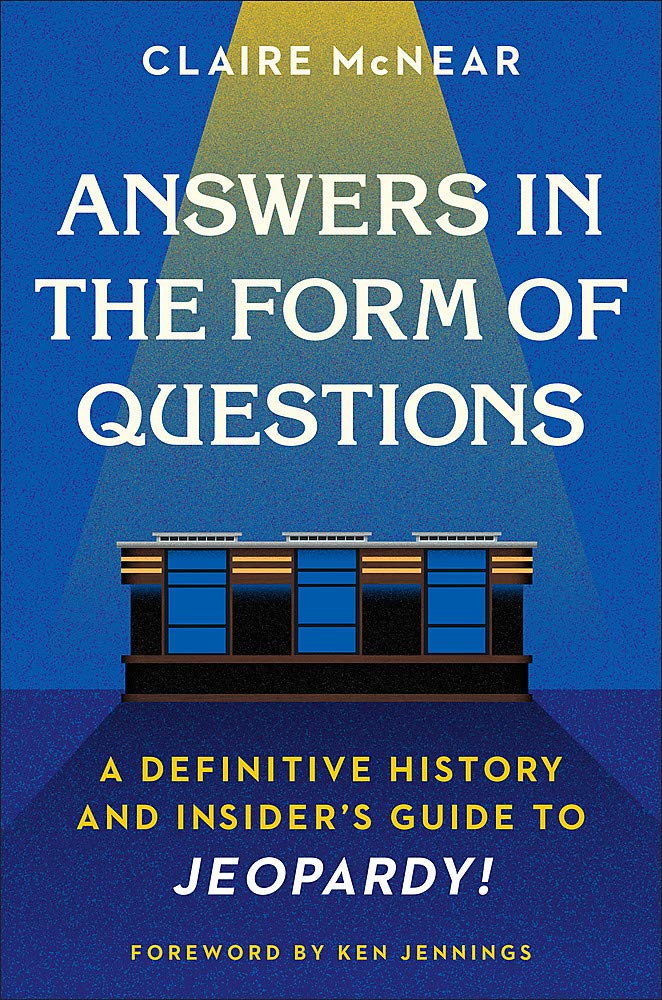
Wow, this book was an absolutely delightful read. I have never been a big fan of Jeopardy, but I have of course watched the show and had brief spells of interest in trivia (I competed on my high school’s Knowledge Bowl team and we did fairly well in the competitions). McNear writes the definitive pop culture book on Jeopardy, tracing its beginnings, the host (Alex Trebek), the contestants, and the entire process from auditioning to recording day.
There are lots of interesting nuggets, particularly on how Jeopardy started in the first place. It was a reaction to the cheating scandal of the Quiz Show (memorialized in the 1994 movie of the same name), where the American public generally lost trust in trivia / intelligence game shows. The wife of the creator of Jeopardy suggested that, to quell concerns behind cheating, why not just start by giving out all the answers (hence Jeopardy’s insistence on answering in the form of a question).
The most joyous thing about reading this book is finding out about the community, particularly in those that either have appeared on the show or those that are still auditioning and trying to get on. There is an entire ecosystem, behind how to train, how to work the buzzer, how to wager, etc. that I never knew about the game.
Hero of Two Worlds: The Marquis de Lafayette in the Age of Revolution by Mike Duncan
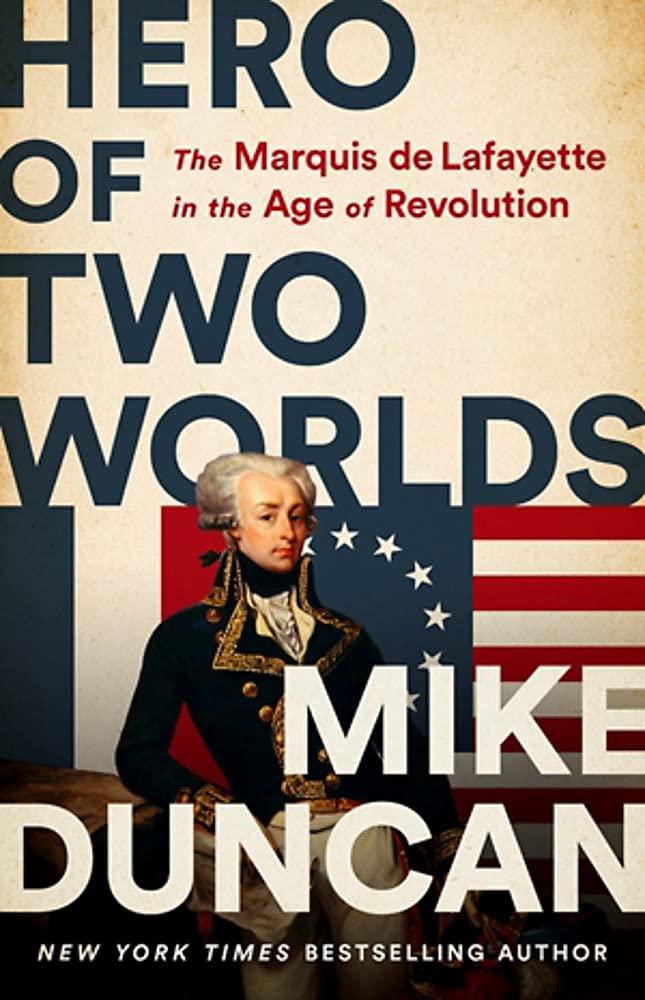
I’m a huge fan of historian Mike Duncan’s book The Storm Before the Storm on the fall of the Roman Empire. So I had a very high level of anticipation for this one, which is a biography of the Marquis de Lafayette. I’m very happy to say that this book is just as well written and enjoyable as the first one.
Before reading this, I only had a vague notion of who the Marquis de Lafayette was. I remember learning about him as a historical figure in the U.S. Revolutionary War, and of course he was a character in the musical Hamilton. I did not appreciate the huge level of impact that he had on the war directly (he was on the front lines, led several troops and battles, and was nearly Washington’s right hand man) and indirectly (he mobilized France to come to the U.S.’s aid, which tipped the scales in its favor). I further had no clue what a huge figure he was in France and his involvement in the French revolution.
The central theme of the book (and I guess, Lafayette’s life) is that he more or less held the same political views, which tended toward liberty from monarchy and democracy. He was radicalized at a young age by Washington and the Revolutionary War, and he held those beliefs through his life. The interesting thing is that while he believed that the US Consititution was a nearly perfect form of government, he believed the right thing for France was to keep the monarch as a figurehead and put repulican institutions behind it. This belief put him firmly on the side of the French revolutionaries against the monarchy, but then the wave went the other way, and he was abandoned by the French when his views were no longer progressive enough. Throughout his life, he held steady, while the prevailing politics and movements of the day swayed around him.
There are all sorts of little nuggets in the book. My favorite one is that Lafayette received a large parade through New York City when he returned to visit the U.S. well after the war. That parade was the first in what later became the Macy’s Day Thanksgiving Parade.
comments powered by Disqus